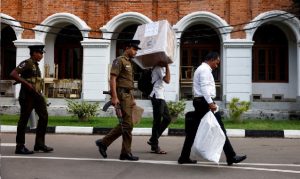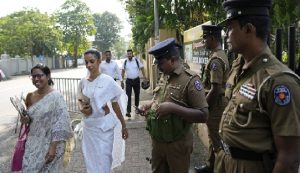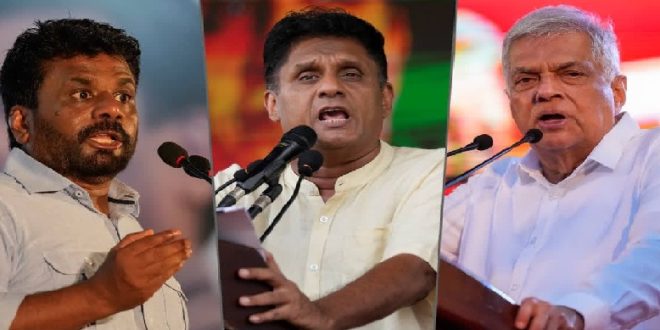22-09-2024
COLOMBO: For the first time in the country’s history, Sri Lanka’s presidential election has gone into a second round of counting after no single candidate won more than 50% of the vote.
 The election commission will now count voters’ second and third choices for president people were asked to mark up to three candidates in order of preference during the election.
The election commission will now count voters’ second and third choices for president people were asked to mark up to three candidates in order of preference during the election.
The first round, which saw the counting of people’s primary choice of candidate, had Anura Kumara Dissanayake, a leftist politician in the lead with 42.31%. Opposition leader Sajith Premadasa is in second place with 32.76%.
In a press conference, the election commission said that all other candidates apart from Dissanayake and Premadasa have been eliminated.
The eliminated candidates’ ballots will now be checked to see if secondary or third preferential votes were given to the two frontrunners.
To be declared the winner, Sri Lanka’s election laws say that a candidate must win 50% plus a single vote.
The election on Saturday was the first to be held since mass protests unseated the country’s leader, Gotabaya Rajapaksa, in 2022 after the country suffered its worst economic crisis.
All of Sri Lanka’s eight presidential elections since 1982 have seen the winner emerge during the first round of counting. This poll has been described as one of the closest in the country’s history.
Seventeen million Sri Lankans were eligible to vote on Saturday and the country’s elections commission said it was the most peaceful in the country’s history.
Still, police announced a curfew late Saturday night citing “public safety. It was lifted at noon local time (06:30 GMT).
 Dissanayake promised voters tough anti-corruption measures and good governance messages that resonated strongly with voters who have been clamoring for systematic change since the crisis.
Dissanayake promised voters tough anti-corruption measures and good governance messages that resonated strongly with voters who have been clamoring for systematic change since the crisis.
Early results showed him rocketing to the lead, prompting several high profile figures including the country’s foreign minister – to congratulate him but the latest numbers have shown him losing ground to Premadasa.
Incumbent president Ranil Wickremesinghe won 17% of the vote, putting him in third place in the polling.
The country’s new president will be faced with the twin tasks of reviving the economy and lifting millions from crushing poverty.
An economic meltdown fueled the “Aragalaya” (struggle) uprising that unseated Rajapaksa from the presidential palace in 2022.
At that time, Sri Lanka’s foreign currency reserves had dried up, leaving the country unable to import essentials such as fuel. Public debt had ballooned to $83bn while inflation zoomed to 70%.
This made basics like food and medicine unaffordable to ordinary people.
The country’s economic misery has been blamed on major policy errors, weak exports and years of under-taxation. This was exacerbated by the Covid-19 pandemic, which choked tourism, a key economic driver but many people have also blamed corruption and mismanagement, fueling anger against Rajapaksa and his family, who collectively ruled Sri Lanka for more than 10 years. (Int’l News Desk)
 Pressmediaofindia
Pressmediaofindia




